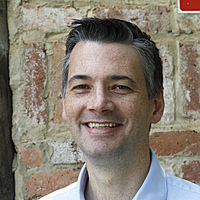Learning from historians as well as from history
Responding to cannon fire in the bay, the citizens of Melbourne armed themselves and gathered in Port Melbourne in September 1854, believing a Russian attack that media commentators had warned of was upon them.
Twenty eight years later, Melbourne’s Age newspaper warned that “it would be comparatively easy for Russia to bring down an overwhelming force from the neighborhood of the Amoor without awakening the suspicions of the British naval officers at China or Japan.” The city’s populace was then stirred by a series of articles claiming to have proof of a planned invasion - allegedly deciphered copies of telegrams between the Russian Minister of Marine and a Russian Admiral.
But the cannon fire in 1854 was actually from a friendly ship, the Great Britain, that was celebrating its release from quarantine. And the telegrams of 1882 and stories of imminent invasion that surrounded them were a hoax. No invasion obviously ever eventuated. The Ballarat Courier described it as a “stupid and offensive affair”.
Melbournians (or a portion of them) had taken what they read in the newspapers at face value. They may have considered newspapers to be a trustworthy source. Gold had been discovered and wealth created that others might be envious of. There was a feeling of isolation given the distance from Great Britain. Russian ships had visited Victoria as they followed the winds on a “great circle” route to get from Europe to the northeastern region of their vast country.
Information fragments
The tragic war that is being waged in Ukraine is generating volumes of information and disinformation around the clock. It is far easier now in the social media era than it was in the 1850s for investors to be exposed to incomplete fragments of the truth or deliberately misleading information that causes their imagination ro run away and make decisions hastily.
This Ukraine war last week triggered panic when Russia attacked a Ukrainian nuclear power plant, Zaporizhzhia, which is understood to be the largest nuclear power plant in Europe. Images of heavy fire led to fears there would be a melt-down on a scale greater than Chernobyl.
Not to underplay the potential risks of what is going on in Ukraine, the reality was in this case that it was a training building at the power plant that caught fire, not the nuclear reactors. And the experts tell us, with reference here to Bloomberg’s reporting, that the reactors are “housed inside containment buildings that will protect them from plane crashes, tornadoes, bomb attacks, and explosions caused by the escape of flammable fission by-products”.
Learning from Historians as well as from History
Students of history (the tales of Melbourne’s Russian fears are sourced from this investor’s long forgotten Honours Thesis in History) need to know how to research and dig for relevant information. But that is only half the battle. Historians must also be able to critically assess information. Who or what is the source? What was the intended audience? What motives and bias come into play?
These skills are equally valuable to investors awash in live feeds from around the world - especially when a social media algorithm may be pushing one particular blinkered view or perspective on them.

